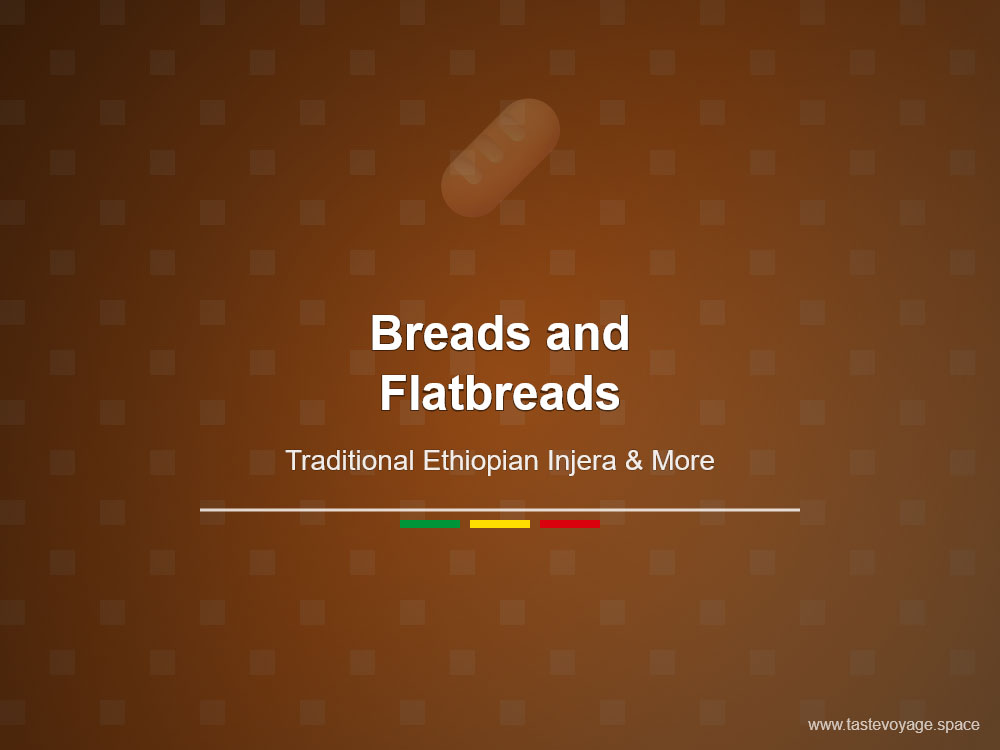Authentic Homemade Ethiopian Injera – Better Than Store-Bought!
Travel the World Through Food >> Breads and Flatbreads>>Ethiopian Cuisine>> Authentic Homemade Ethiopian Injera – Better Than Store-Bought!
Authentic Homemade Ethiopian Injera – Better Than Store-Bought!
Discovering the Cultural Significance of Homemade Ethiopian Injera
Ethiopian Injera is much more than just a bread; it is a central element of Ethiopian culinary heritage. This spongy, sourdough flatbread is a symbol of tradition, community, and hospitality. It’s often the heart of communal meals, bringing families and friends together around the dining table. In Ethiopia, Injera is not only a staple food but also a reflection of centuries-old culinary artistry and cultural identity.
The Culinary Significance of Injera
Injera’s unique texture and flavor are achieved through a fermentation process that can take several days. This process develops a distinctive tangy taste that complements a variety of dishes. Traditionally made from teff, a tiny, nutrient-rich grain native to Ethiopia, Injera is celebrated for its nutritional benefits and resilience. The batter’s fermentation is a natural way to preserve the grains and enhance their digestibility, making Injera both wholesome and delicious.
Culinary experts and food enthusiasts worldwide admire Injera for its versatility. It serves as both a plate and utensil, with other dishes placed directly on top of it. This practice highlights the communal spirit of Ethiopian dining, emphasizing sharing and togetherness. Whether paired with Spicy stews, lentils, or vegetables, Injera elevates every meal with its subtle sourness and chewy texture.
Cultural Value of Injera in Ethiopian Society
In Ethiopia, Injera embodies cultural pride and tradition. It is often prepared for special occasions, festivals, and religious celebrations, symbolizing unity and continuity. Making Injera is a skill passed down through generations, often requiring years of practice to master its perfect texture and flavor.
Injera also plays a role in social rituals. It fosters a sense of belonging and respect within communities. Sharing Injera signifies trust and friendship, making it a powerful symbol of hospitality. Its significance extends beyond the kitchen, representing Ethiopian identity and heritage.
The Art of Making Injera at Home
Preparing Injera at home allows for a deeper connection to Ethiopian culture. While store-bought versions are convenient, homemade Injera offers a richer, more authentic experience. It reflects patience, tradition, and care. By making Injera from scratch, you embrace a culinary craft that has stood the test of time, celebrating the flavors and techniques that define Ethiopian Cuisine.
Conclusion
Ethiopian Injera is a remarkable dish that embodies the essence of Ethiopian culture and culinary tradition. Its unique flavor, texture, and cultural significance make it much more than a simple bread. It is a symbol of community, history, and identity. Exploring the art of making and enjoying Injera opens a window into Ethiopia’s rich cultural tapestry, inviting you to appreciate its timeless appeal. Whether served at a family gathering or prepared in your own kitchen, Injera continues to inspire a sense of connection and celebration.
